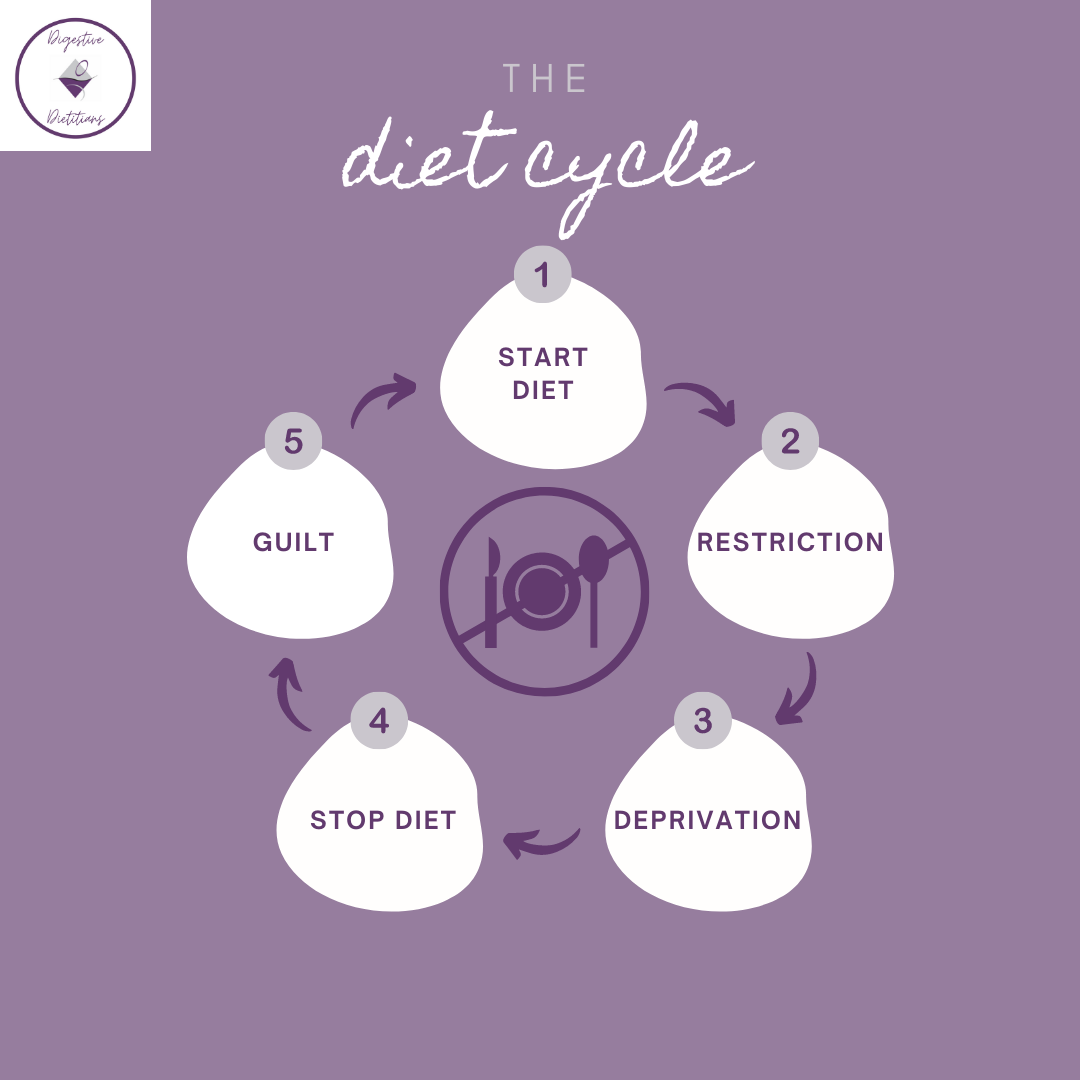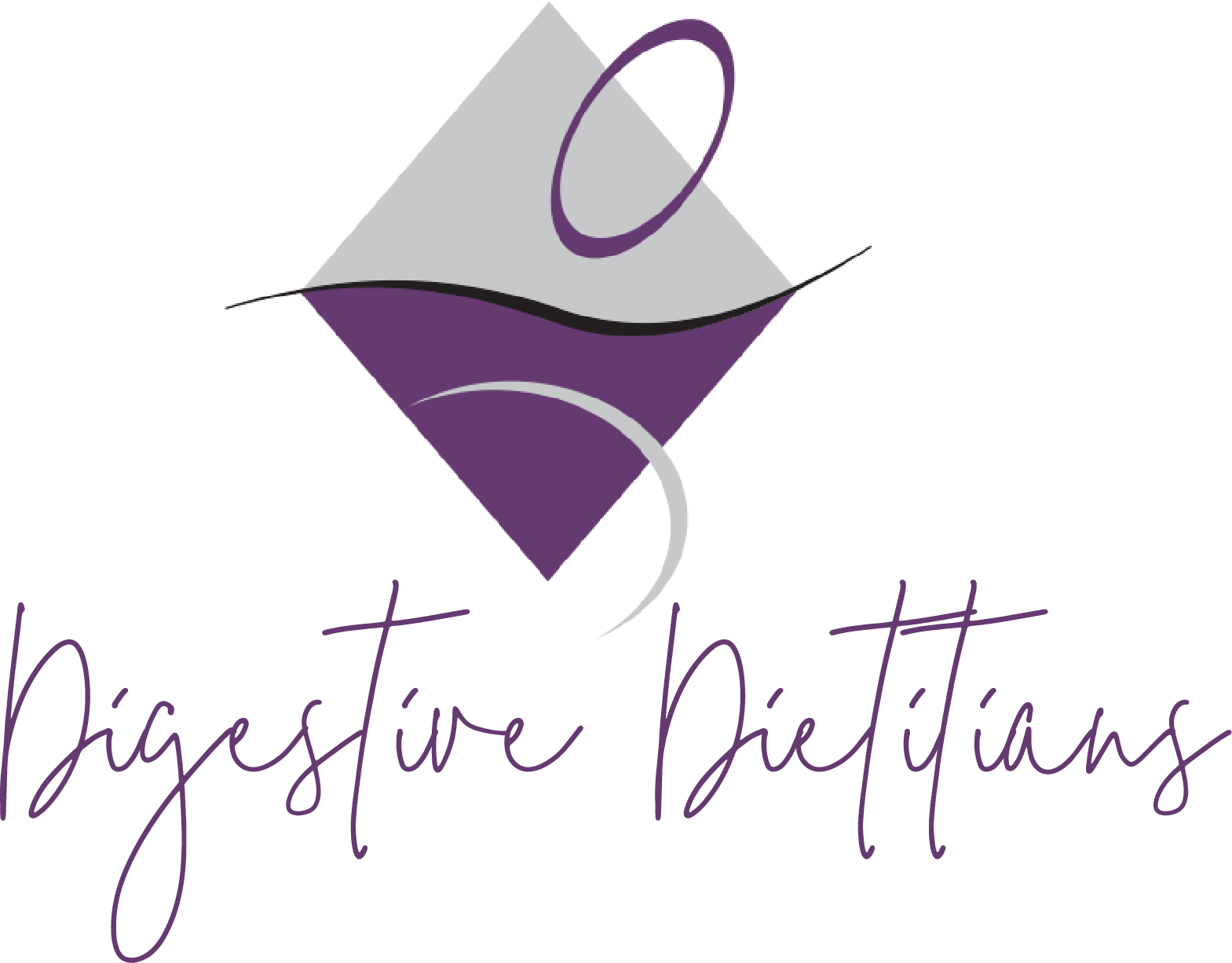
If you are dieting to lose weight ask yourself; is the way you are eating a way of eating that you think you can maintain forever? If not, then you are likely stuck in the diet cycle. If you feel guilty or have a list of foods that are food and bad/ naughty/ unhealthy then you are probably stuck in a diet cycle.
The diet cycle keeps you going around in circles.
- You start a diet or “lifestyle change” or clean eating journey. You restrict food to try to lose weight.
- You feel deprived and your desire for the foods you are restricting increases. When you restrict your food intake your body will fight back by increasing cravings and causing you to fixate on food until you give in and eat as much as you need for energy.
- You get worn down and tired and eat the “forbidden foods”. Maybe you think to yourself “I shouldn’t be having this”. You eat it quickly and don’t enjoy eating it. You will probably eat a lot of the food because you think “Oh well, I’ve had one I might as well have the whole lot.” Often this is a binge and you eat past the point of feeling full. You might even think “I should eat the whole block of chocolate so there is none left in the house and I won’t eat it tomorrow”
- Whilst eating you feel better and potentially even soothed by food. This is a natural instinct as from a young age and as babies we are soothed with food.
- After eating you start to feel guilty for eating the “forbidden food”, you feel anxious, stressed or like you have ‘failed’.
- Give up and continue to eat due to feeling low, stressed and anxious. This results in weight gain over time.
- Weight gain causes further upset and you start dieting again to lose weight.
The good news is that at any point you can choose to exist this cycle.
Some strategies to help this:
- Eat for health not for weight loss. Prioritise fruit, vegetables and wholegrains but remember those less nutritious foods that you love still have a place in a balanced diet. If nothing else, they can prevent you from feeling deprived and can be an important part of social connection.
- Remember progress not perfection. It is impossible to change your lifetime worth of habits overnight. Try to take it step by step and make small changes at a time.
- Accept your body and your genetics. Not everyone is meant to be the same shape or size. Body acceptance is important.
- Practice positive food language. Avoid labelling food as good or bad and avoid talking about food in this way. There are no foods that you can never have. All foods are available to you and can be included in moderation, even when you are trying to lose weight. Once you realise this, you won’t have to eat particular foods just because they are in front of you, but only if you actually feel like them. Ask yourself this, if you truly believed that you could have any food at any time be it a chocolate or a carrot do you think that you would crave chocolate or sweets as regularly if you knew that they would always be available and you would never have to feel guilty about them. Putting all foods on an equal playing field can mean that food loses its power over you and that you can prioritise more nutritious foods without feeling deprived.
- Get back in touch with your body’s signals of hunger and fullness. To get started eat regular meals throughout the day (ideally at similar times each day i.e. breakfast, lunch, dinner), this will help to regulate your appetite and assist with controlling blood sugar changes. These meals should be planned around the five foods groups, as these foods are nutritious. Strong cravings are less likely to occur when your body gets what it needs.
Share
You May Also Like
May 4, 2022
Basic Principles of Menu Planning
March 4, 2021
How to stay healthy as we hop into the Easter period
August 5, 2021
